WHAT:
Ground to Air Spoken Communication
WHERE:
Brooklands Circuit, Weybridge, Surrey, KT13 0SL, UK
LOCATION:
WHEN:
April 1915
WHO:
Major C.E. Prince
DETAILS:
At the outbreak of World War I in August 1914, wireless communication was mostly confined to maritime use, with little military or civilian interest. While the Royal Navy had adopted it aboard ships, the British Army remained doubtful of its battlefield reliability. As static trench warfare took hold, the need for effective aerial reconnaissance became clear. Early attempts using visual signals, such as flares and lamp signaling, proved unreliable in combat conditions.
Wireless was seen as a potential solution, and two Royal Engineers officers, Lieutenants Donald Lewis and Baron James, took the initiative to prove its effectiveness. Conducting experiments in France, they installed a prototype ‘Rouget’ wireless system in Lewis’s aircraft. In September 1914, during the First Battle of the Marne, Lewis sent a wireless message from the air, reporting a crucial 30-mile gap in the German lines. This was the first time a wireless message from a British aircraft was received and acted upon. Later that month, during the Battle of the Aisne, their wireless-guided artillery spotting proved highly successful.
A significant milestone in aviation communication came in April 1915 at Brooklands, England. Captain J.M. Furnival, on the ground, received the first-ever radio voice transmission from Major C.E. Prince in an aircraft above. Prince’s message, instructing the pilot to dip his wings if he could hear, was met with an immediate response. In June 1915, again at Brooklands, the first air-to-ground voice transmission was achieved over a 20-mile range.
These breakthroughs at Brooklands and over the battlefields of France marked the dawn of real-time aerial communication, paving the way for its future military use. Decades later, Air Chief Marshal Hugh Dowding, who had overseen the wireless experiments at Brooklands, would employ radio and its descendant, radar, to great effect during the Battle of Britain in World War II.
LINKS:
CHAMPION:
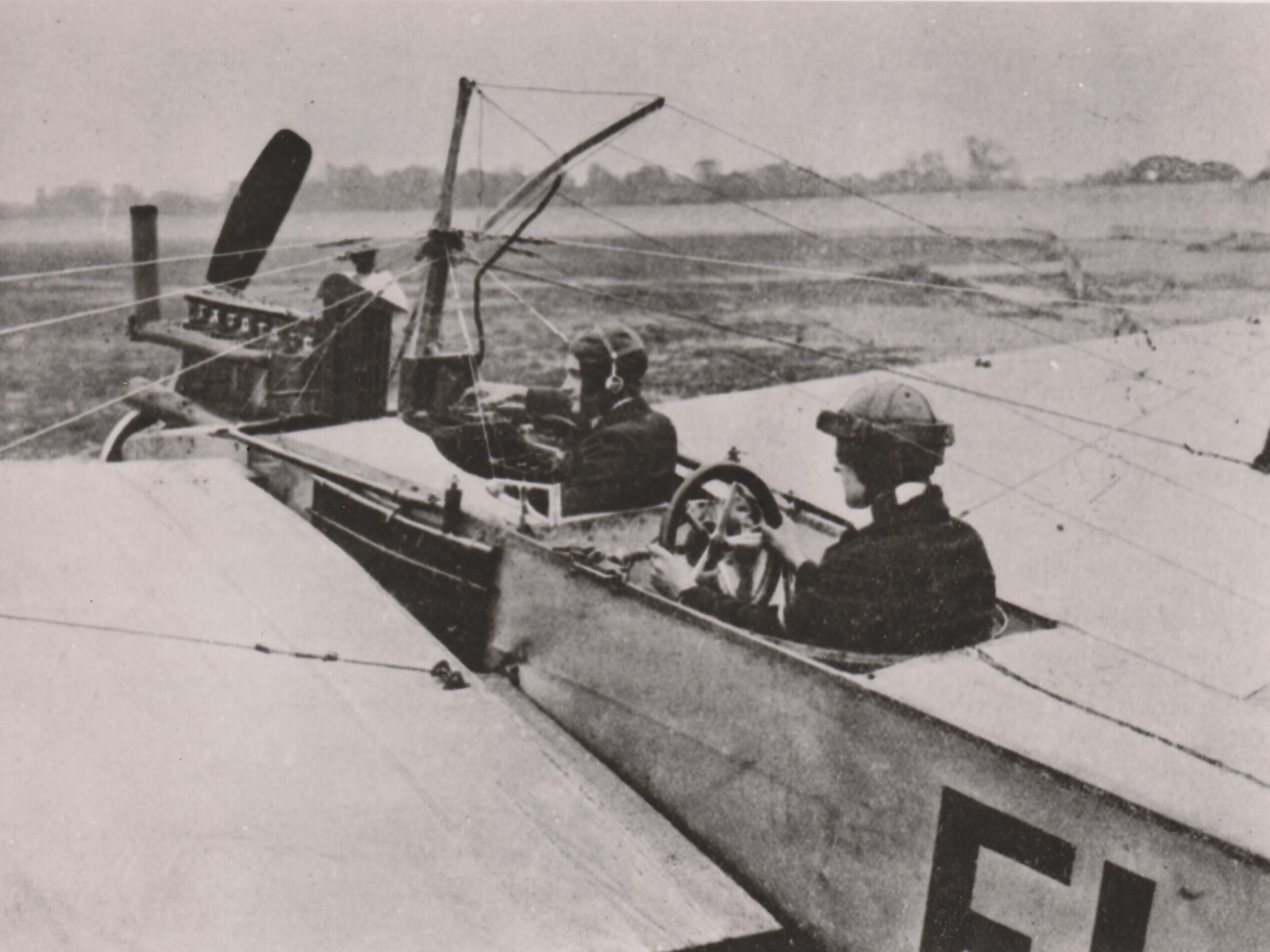
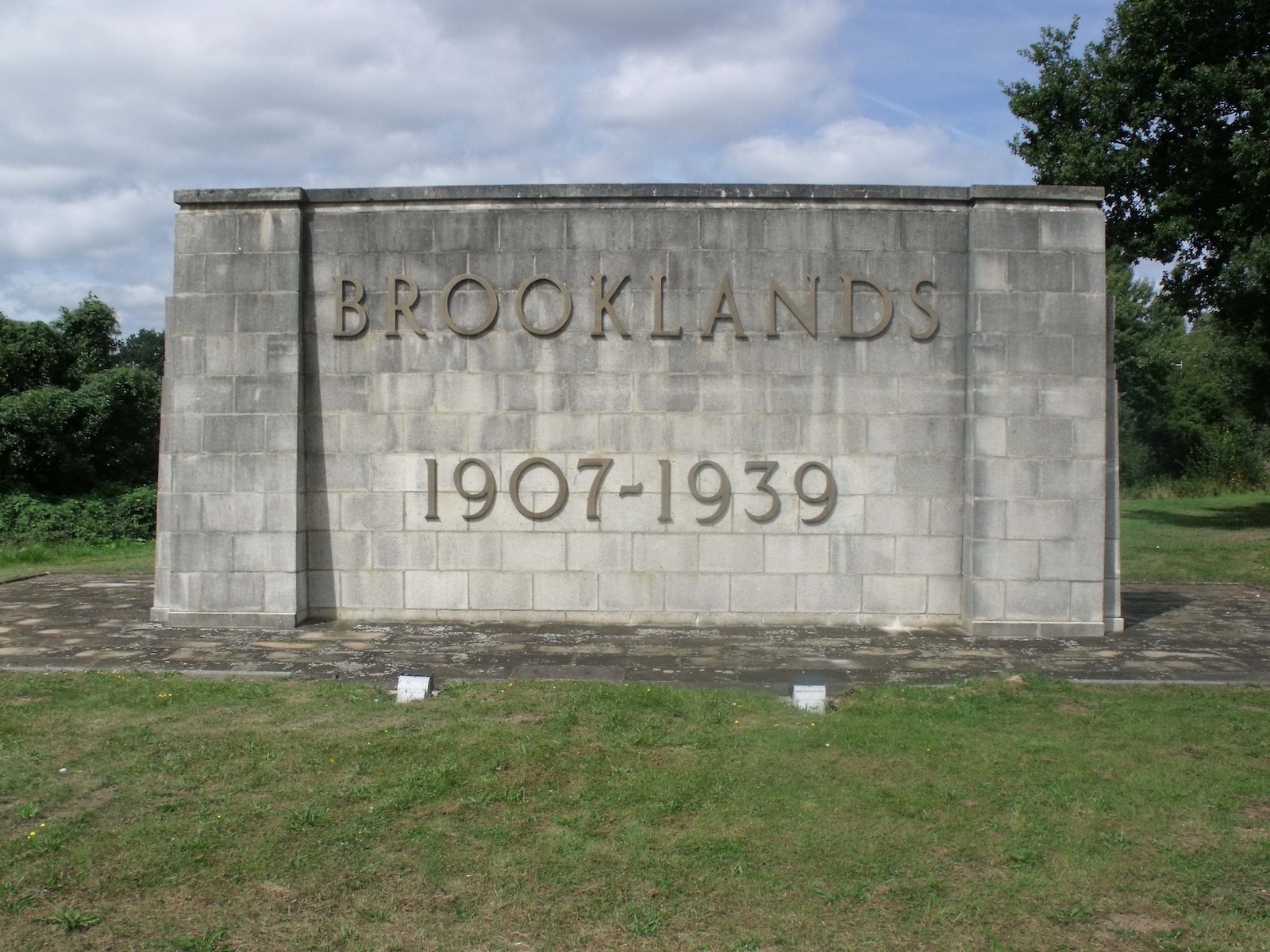
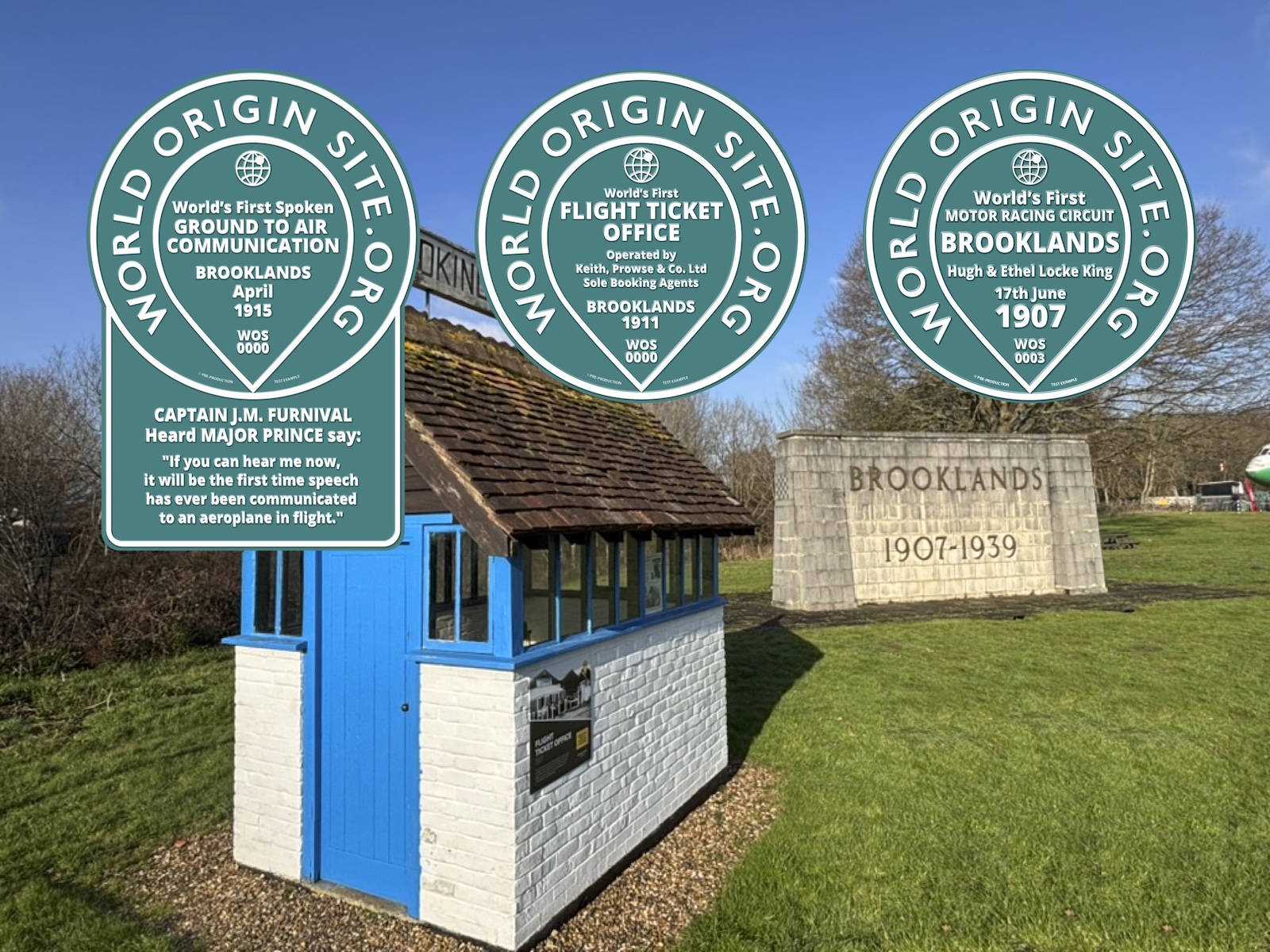
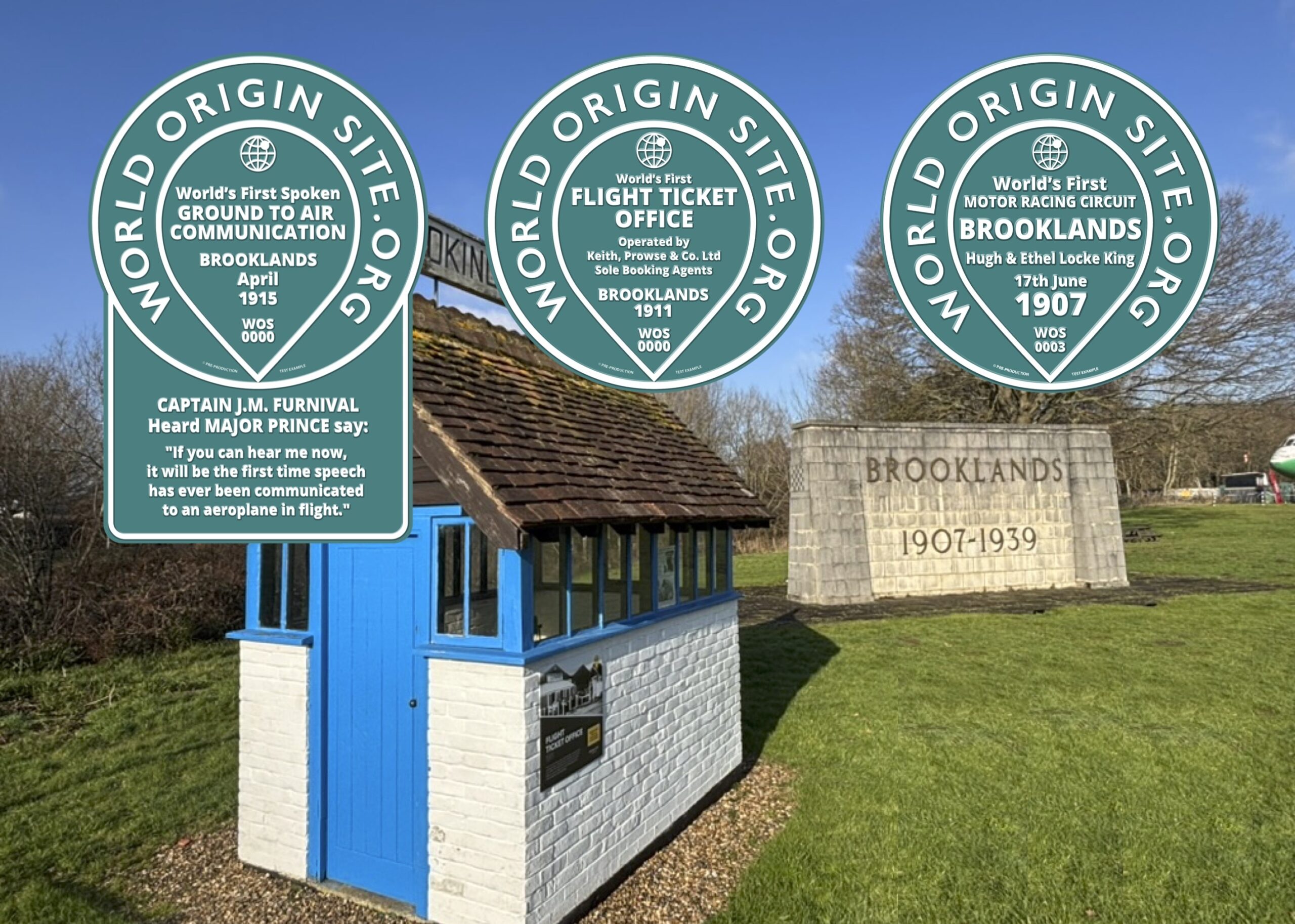
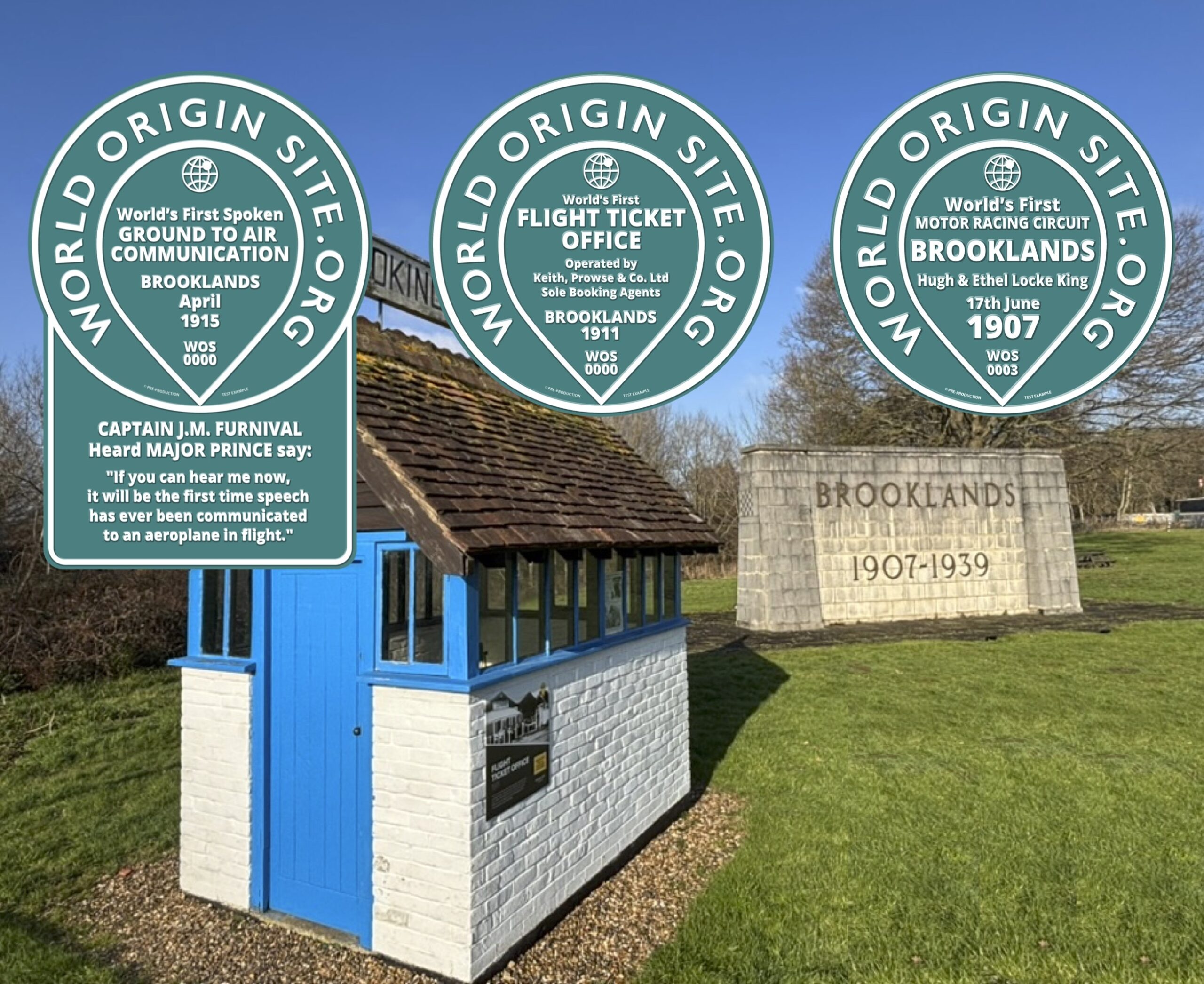
Brooklands Historic Triple – Three World Firsts
Brooklands will be marking their 120th year in 2027 and will celebrate by unveiling a World Origin Site plaque for the World’s First Purpose Built Motor Racing Circuit. Before that will be plaques for the World’s First Ground to Air Communication, successfully transmitted 110 years ago in 1915 and the World’s First Airline Ticket Office from 1911 when you could be some of the first paying passengers to sample a test flight around the Surrey skies.


